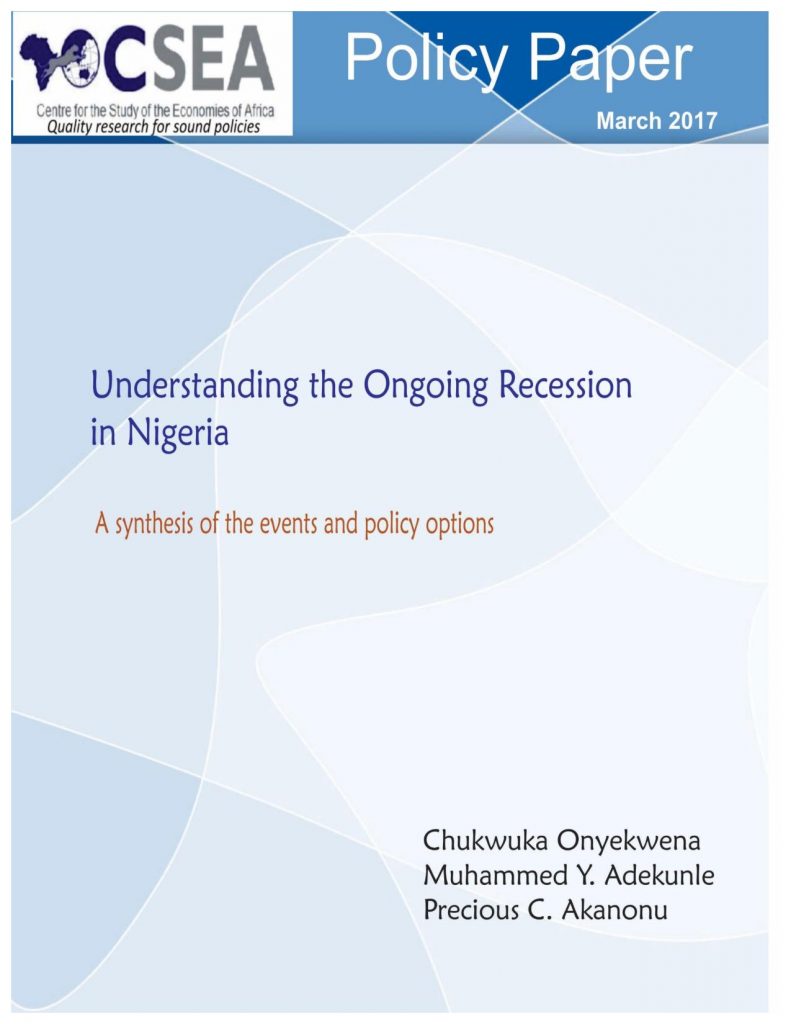Policy Brief & Alerts

May 17, 2017
Understanding The Ongoing Recession In Nigeria:A Synthesis Of The Events And Policy Options
In
the second quarter of 2016, the Nigerian economy witnessed its first recession
in twenty years due to the interplay of several external and internal factors.
The recession has continued until date and has given rise to relentless
unemployment rate and job losses, double digit and soaring inflation, currency
depreciation and widening gap between parallel market and official exchange
rates, amongst other adverse effect on individuals and firms in the country.
Thus, there is a need to take a deeper look into the nature of the present
recession as well as the impact of monetary and fiscal policy responses thus
far, in order to shed light on the way forward towards tackling the recession
and ensuring sustainable economic growth. This paper analyses the ongoing
recession in the Nigerian economy to provide insights into the interplay of
events and recommendations for policy.
